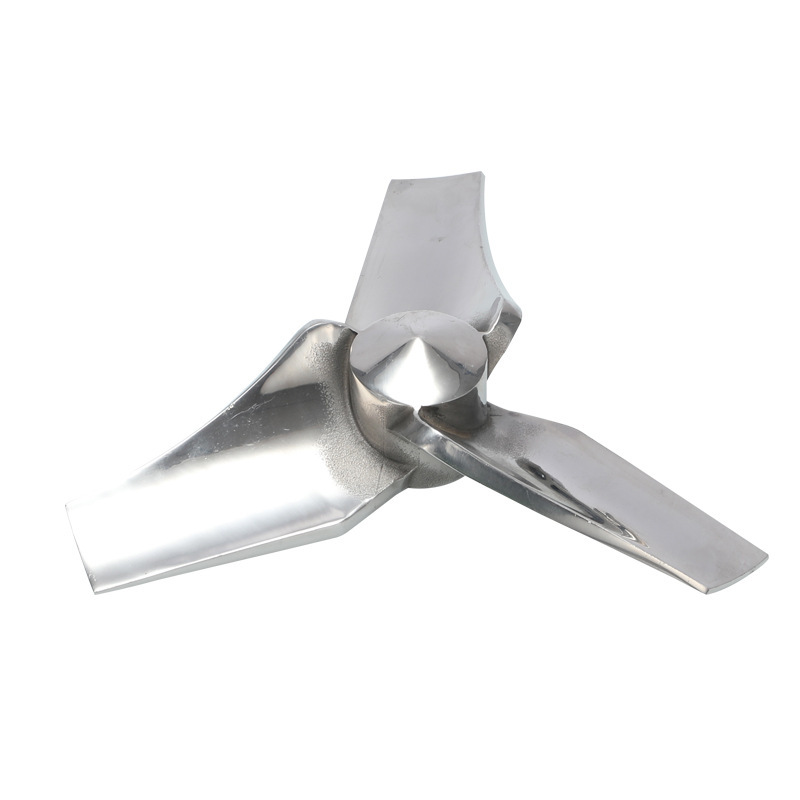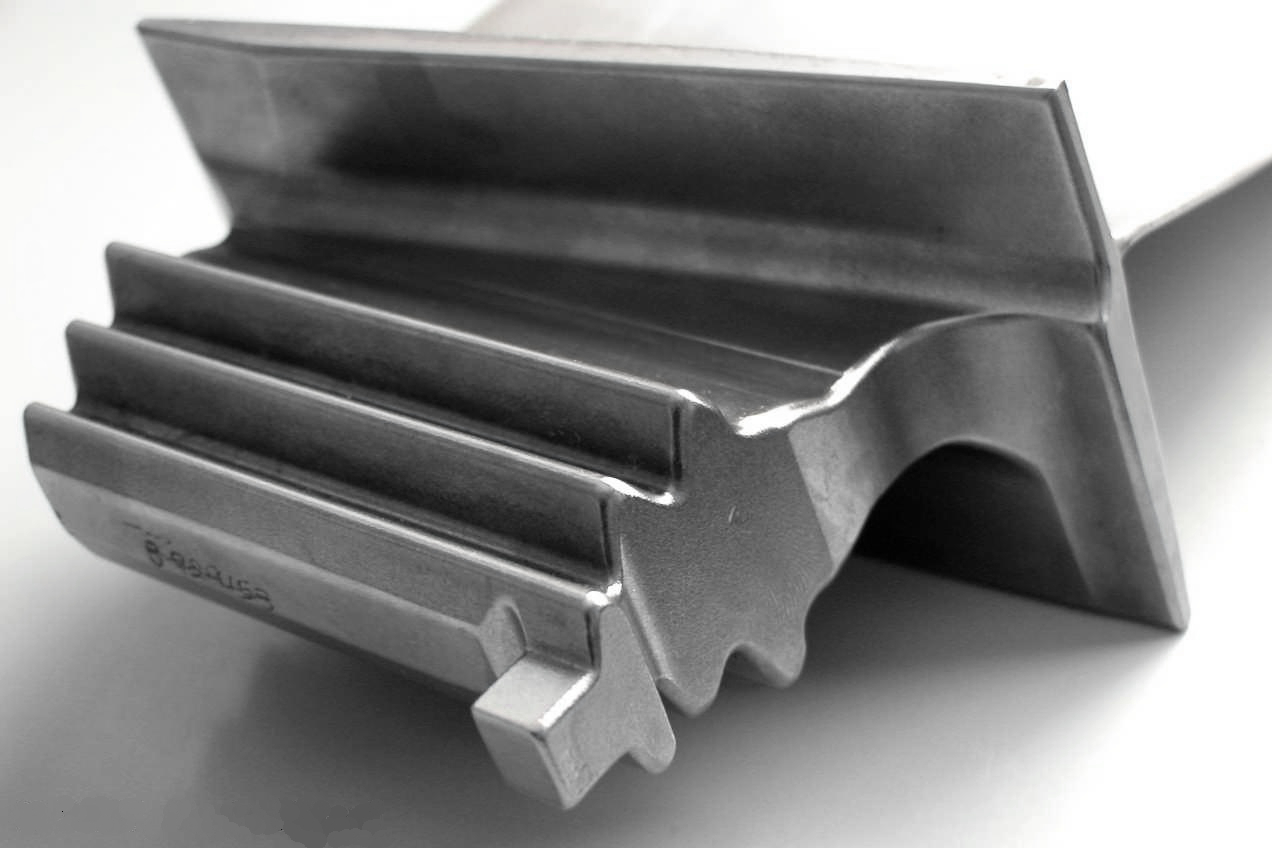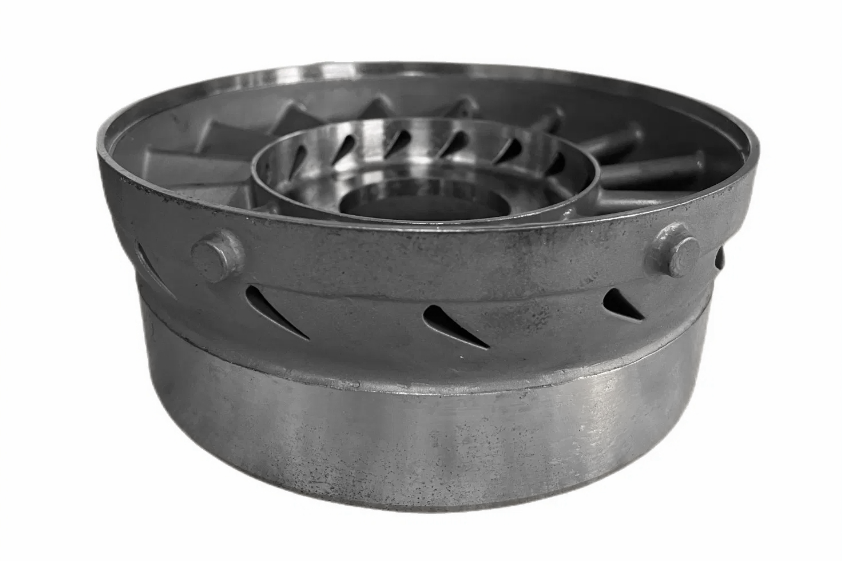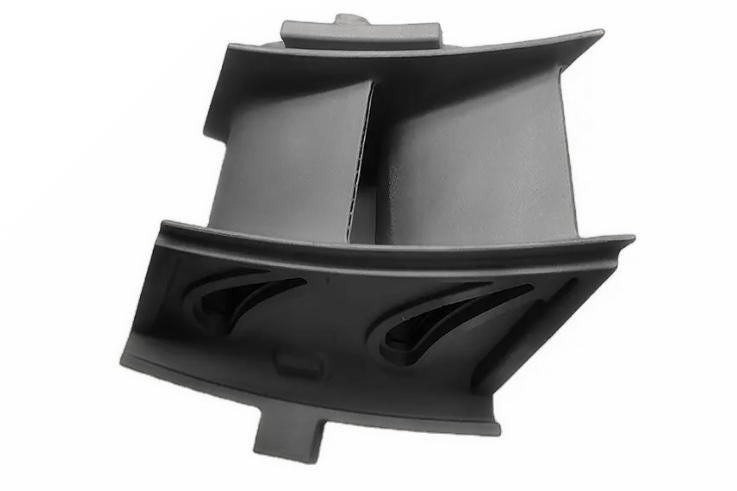Ti-3Al-2.5Sn
About Ti-3Al-2.5Sn Superalloy
Name and Equivalent Name
Ti-3Al-2.5Sn, known as Titanium Grade 9, conforms to industry standards: UNS R56320, ASTM B337, DIN/EN 3.7104, AMS 4945, and ISO 5832-4.
Ti-3Al-2.5Sn Basic Introduction
Ti-3Al-2.5Sn is an alpha-beta titanium alloy offering excellent strength, corrosion resistance, and good weldability. This alloy is lighter than Ti-6Al-4V, making it suitable for weight-sensitive applications without compromising strength. It performs well under moderate temperatures, with good fatigue strength and stability.
Due to its corrosion resistance and weldability, Ti-3Al-2.5Sn is widely used in aerospace, marine, and chemical processing industries. Its mechanical properties make it ideal for pressure vessels, pipes, and tubes that require strength and durability under dynamic conditions.

Alternative Superalloys of Ti-3Al-2.5Sn
Alternative alloys to Ti-3Al-2.5Sn include Ti-6Al-4V (Grade 5) for applications demanding higher strength. Ti-6Al-4V ELI (Grade 23) is another option for enhanced toughness, such as in medical implants.
Other potential alternatives are nickel-based superalloys like Inconel 718, which offer superior performance at elevated temperatures, though they add weight. Ti-5Al-2.5Sn provides better high-temperature resistance than Ti-3Al-2.5Sn but with slightly reduced weldability.
Ti-3Al-2.5Sn Design Intention
The design intention behind Ti-3Al-2.5Sn is to offer a lightweight titanium alloy with good strength and excellent weldability. This alloy addresses applications where weight savings are critical, such as aerospace components and marine structures.
With its corrosion resistance and thermal stability, Ti-3Al-2.5Sn is well-suited for chemical and pressure applications. It provides a balance of mechanical properties, maintaining strength at moderate temperatures while remaining ductile for easy fabrication and welding.
Ti-3Al-2.5Sn Chemical Composition
The alloy's chemical composition ensures a balance of strength and corrosion resistance, with aluminum providing strength and tin offering enhanced weldability.
Element | Content (wt%) |
|---|---|
Aluminum (Al) | 2.5 – 3.5 |
Tin (Sn) | 2.0 – 3.0 |
Carbon (C) | ≤ 0.05 |
Iron (Fe) | ≤ 0.2 |
Ti-3Al-2.5Sn Physical Properties
Ti-3Al-2.5Sn exhibits a lightweight structure, moderate tensile strength, and good thermal conductivity, making it suitable for aerospace and industrial applications.
Property | Value |
|---|---|
Density | 4.54 g/cm³ |
Melting Point | 1580°C |
Thermal Conductivity | 16.3 W/(m·K) |
Elastic Modulus | 110 GPa |
Metallographic Structure of Ti-3Al-2.5Sn Superalloy
Ti-3Al-2.5Sn features an alpha-beta microstructure, with the alpha phase providing excellent corrosion resistance and stability at elevated temperatures. The beta phase contributes to the alloy's strength and weldability, making it suitable for structural components exposed to moderate heat.
The alloy’s microstructure allows it to maintain mechanical properties during welding, ensuring consistent performance. Heat treatment can refine the grain structure to enhance fatigue strength and creep resistance for demanding applications.
Ti-3Al-2.5Sn Mechanical Properties
Ti-3Al-2.5Sn delivers excellent mechanical properties, with good tensile strength and reliable performance at temperatures up to 315°C.
Property | Value |
|---|---|
Tensile Strength | 690 – 760 MPa |
Yield Strength | 620 – 690 MPa |
Hardness | 25 – 30 HRC |
Elongation | 15 – 20% |
Key Features of Ti-3Al-2.5Sn Superalloy
Lightweight with High Strength, Ti-3Al-2.5Sn offers a high strength-to-weight ratio, making it ideal for aerospace applications where weight reduction is critical without compromising mechanical performance.
Corrosion Resistance The alloy exhibits excellent corrosion resistance, especially in marine and chemical environments, ensuring durability and low maintenance.
Good Weldability Ti-3Al-2.5Sn’s microstructure allows easy welding and fabrication, making it suitable for pressure vessels, pipelines, and structural components.
Thermal Stability This alloy maintains its mechanical properties up to 315°C, making it suitable for moderate-temperature applications, such as heat exchangers and exhaust systems.
Fatigue Resistance Ti-3Al-2.5Sn provides reliable performance under cyclic loads, making it ideal for aerospace components and industrial machinery subjected to repeated stress.
Ti-3Al-2.5Sn Superalloy’s Machinability
Vacuum Investment Casting: Ti-3Al-2.5Sn is compatible with Vacuum Investment Casting due to its corrosion resistance and ability to produce fine components with complex shapes. This process ensures reduced contamination and improved surface quality.
Single Crystal Casting: Ti-3Al-2.5Sn is unsuitable for Single Crystal Casting, as it is designed for applications where equiaxed microstructures are preferred over single-crystal forms.
Equiaxed Crystal Casting: Equiaxed Crystal casting is ideal for Ti-3Al-2.5Sn. It ensures uniform grain distribution, enhancing fatigue strength and structural stability under cyclic loading.
Superalloy Directional Casting: Superalloy Directional Casting is not typically used for Ti-3Al-2.5Sn, as the alloy's properties align better with equiaxed grain structures for pressure vessels and piping.
Powder Metallurgy Turbine Disc: Ti-3Al-2.5Sn is generally not used for Powder Metallurgy Turbine Disc applications, as it lacks the high-temperature creep resistance required for turbine environments.
Superalloy Precision Forging: Superalloy Precision Forging is effective for Ti-3Al-2.5Sn, optimizing its strength and fatigue properties for aerospace and marine components.
Superalloy 3D Printing: While possible, Superalloy 3D Printing is less common for Ti-3Al-2.5Sn compared to other titanium alloys, but it can be used for custom parts with intricate geometries.
CNC Machining: Ti-3Al-2.5Sn is highly compatible with CNC Machining, offering excellent surface finishes and precise tolerances for aerospace and industrial applications.
Superalloy Welding: Superalloy Welding works well with Ti-3Al-2.5Sn due to its excellent weldability, making it suitable for fabricating structural components in aerospace and marine industries.
Hot Isostatic Pressing (HIP): Hot Isostatic Pressing (HIP) enhances Ti-3Al-2.5Sn’s mechanical properties by eliminating internal voids, improving fatigue life, and ensuring optimal material performance.
Ti-3Al-2.5Sn Superalloy Applications
Aerospace and Aviation: In Aerospace and Aviation, Ti-3Al-2.5Sn is used for aircraft tubing and structural components, offering lightweight solutions with high fatigue resistance.
Power Generation: In Power Generation, this alloy finds applications in heat exchangers and turbine casings, providing strength and stability under moderate heat.
Oil and Gas: The Oil and Gas industry uses Ti-3Al-2.5Sn for pipelines, pressure vessels, and valves, benefiting from its corrosion resistance and reliability under pressure.
Energy: Energy systems leverage Ti-3Al-2.5Sn for structural components in renewable energy technologies, ensuring long-term performance in dynamic environments.
Marine: Due to its corrosion resistance and durability, the Marine industry employs Ti-3Al-2.5Sn for seawater-exposed structures, propeller shafts, and piping.
Mining: In Mining, the alloy is used for pump casings, drill bits, and wear-resistant components, offering reliability in harsh environments.
Automotive: Automotive applications include exhaust systems, valve springs, and connecting rods, where weight reduction and performance are crucial.
Chemical Processing: In Chemical Processing, Ti-3Al-2.5Sn is used for heat exchangers and reactor vessels, providing resistance to aggressive chemicals.
Pharmaceutical and Food: Due to its hygienic properties and corrosion resistance, the Pharmaceutical and Food industries use Ti-3Al-2.5Sn for mixers, valves, and process equipment.
Military and Defense: In Military and Defense, Ti-3Al-2.5Sn provides lightweight, durable components for armored vehicles and aircraft.
Nuclear: The Nuclear sector uses this alloy for reactor components and radiation-resistant structures, leveraging its mechanical stability and corrosion resistance.
When to Choose Ti-3Al-2.5Sn Superalloy
Custom superalloy parts made from Ti-3Al-2.5Sn are ideal for applications that demand a balance of lightweight design, corrosion resistance, and good mechanical performance. It is most suitable for aerospace, marine, and chemical industries where weight reduction and structural integrity are critical. Ti-3Al-2.5Sn should be used in applications involving moderate temperatures up to 315°C, ensuring long-term reliability under cyclic stress. This alloy is also excellent for pressure vessels, piping, and components exposed to dynamic environmental conditions. Its superior weldability makes it easy to fabricate complex structures, offering an efficient solution for industries with demanding operational needs.



